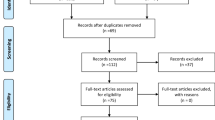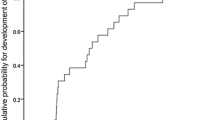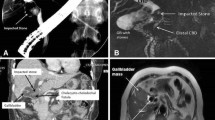Abstract
Background: The aim of this study was to identify predisposing factors for complications after gallstone spillage during laparoscopic cholecystectomy (LC). Methods: Papers derived from Medline search and papers from reference lists within these papers were studied. Ninety-one reports on complications caused by lost gallstones published between 1991 and 1998 were analyzed. These patients were compared with cases in published series on LC in general. Results: Gallbladder perforation (20%) and stone spillage (9%) were the two most common complications of LC which occurred during the dissection (75%) and removal (25%) of the gallbladder. Predisposing factors for developing complications after stone spillage were: older age, male sex, acute cholecystitis, spillage of pigment stones, number of stones (>15) or size of the stone (Ø > 1.5 cm), and perihepatic localization of lost stones. CT-scan and ultrasound examination proved best for the recognition of complications caused by lost stones. Explorative laparotomy and surgical removal of the stones was the most frequently used therapy. Conclusions: Gallbladder perforation and stone spillage might cause hazardous complications. In cases with loss of numerous or large pigment stones which cannot be retrieved by laparoscopy, intraoperative conversion to open surgery can be justified.
Similar content being viewed by others
Author information
Authors and Affiliations
Rights and permissions
About this article
Cite this article
Brockmann, J., Kocher, T., Senninger, N. et al. Complications due to gallstones lost during laparoscopic cholecystectomy. Surg Endosc 16, 1226–1232 (2002). https://doi.org/10.1007/s00464-001-9173-8
Received:
Accepted:
Published:
Issue Date:
DOI: https://doi.org/10.1007/s00464-001-9173-8




